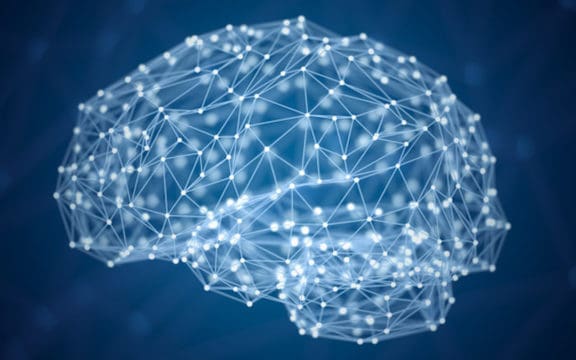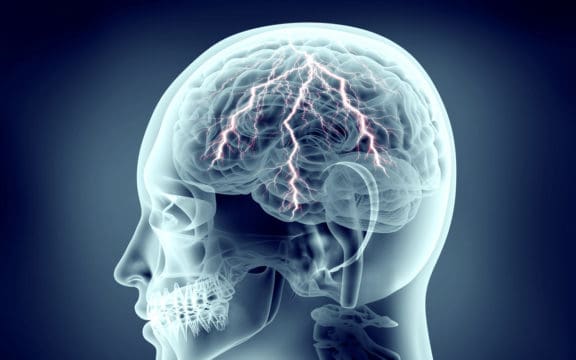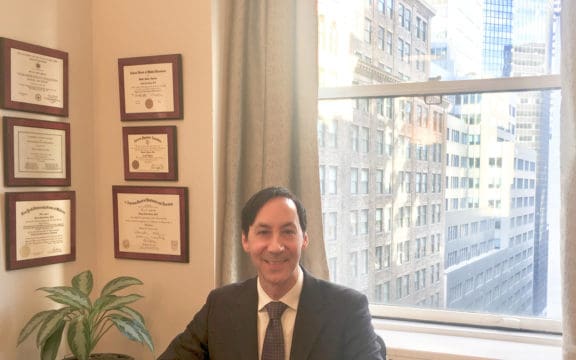“Does TMS hurt?” is one of the most common questions we receive. Mid City TMS is here to explain that while transcranial magnetic stimulation (TMS) patients occasionally report mild headaches and scalp discomfort at the beginning of the treatment course, these minor side effects almost always subside after a few sessions.
Depression can be so painful that sufferers want nothing more than to get better. These people often go to great lengths to cure their depression through antidepressants and therapy, though sometimes those treatment approaches are not sufficiently beneficial. Because depression is so debilitating, the last thing patients want is a treatment that causes them pain. This is why most people ask, “Does TMS hurt?”
Why Should You Try TMS?
Depression is an illness that is largely caused by irregularities in brain chemistry and neurological divergences in the structure of the brain itself. In individuals who struggle with depression, neurons do not function and communicate with each other as they do in neurotypical individuals. Certain parts of the brain, particularly in the frontal and limbic regions, will be hyperactive or underactive, causing abnormalities in mood regulation.
Irritability, sadness, feelings of emptiness, concentration issues, trouble sleeping, trouble eating, decreased interest in activities, feelings of hopelessness, and anxiety are symptoms of depression. People who are affected by depression experience a range of these symptoms over an extended period of time.
TMS is a painless, safe, and effective treatment for depression.
TMS Is Painless
Transcranial magnetic stimulation consists of placing a magnetic coil on the head of the patient. This coil is a magnetic field generator. During the treatment session, ultra-focused magnetic pulses generated by the coil create minute electrical currents in targeted areas of the brain that are involved in mood regulation. These pulses cause underactive neurons to fire, initiating activity and improving brain connectivity with other cortical and subcortical regions that interact with the targeted area.
Occasionally, patients receiving TMS may experience minor facial twitching during the treatment session. This side effect is not dangerous or harmful and usually not even noticeable to the patient. The twitching can be mitigated and usually eliminated by very slight repositioning of the angle of the magnetic coil.
Since TMS is nonconvulsive, noninvasive, and safe, the only thing you feel during the session is a small tapping sensation on your head directly under the magnetic coil. TMS is so painless that the procedure is done while patients are awake and alert. Unlike prescription drug therapy, TMS does not cause side effects that may alter other systems of the body.
TMS Treatments Are Safe
Once a TMS patient arrives at our office, they are seated in a comfortable chair for a 20- to 40-minute session. The duration of TMS session periods last for about five to six weeks, and during that entire time period, patients are safe to travel to each appointment on their own. After each treatment session, patients are able to resume their normal, everyday activities.
The lack of cognitive side effects and lack of recuperation period drastically differentiates TMS treatment from ECT, or electroconvulsive therapy, also known as shock therapy. ECT is typically conducted in a hospital, and patients are sedated with general anesthesia during the procedure. ECT passes controlled electrical currents through most of the brain to induce a seizure.
TMS is a safer and more manageable alternative to ECT. TMS treatments do not interfere with a patient’s ability to function; patients can undergo treatment and still maintain an otherwise regular schedule.
TMS Is Effective
Since 2008 (shortly after TMS received FDA approval for the treatment of depression), Dr. Bruno has successfully treated hundreds of patients with TMS. Of previous Mid City TMS patients, one-third of patients have experienced full remission, meaning that nearly all of their symptoms have been resolved. More than three-fourths of patients have experienced a significant response to TMS treatment, meaning they experienced at least a fifty percent reduction in their symptoms.
Research has demonstrated that TMS is safe and well-received by the body. TMS is also a particularly effective line of treatment for pharmaco-resistant depression. Patients who suffer from pharmaco-resistant depression cannot find relief from antidepressants, and alternative therapies are the only option for treatment.
In a study of patients struggling with drug-resistant major depression, results showed a substantial improvement in quality-of-life. Statistics showed a notable and significant improvement in the depressive symptoms of participants who received six weeks of active TMS treatment, as opposed to participants in the control group who received sham TMS therapy. The group treated with genuine TMS demonstrated improvements in functionality as well as quality-of-life.
Similar improvements were observed in patients who joined the open-label extension study that involved receiving genuine TMS treatment. These benefits were maintained throughout a twenty four week follow-up period.
Though one of our most common questions from patients is “Does TMS hurt?” many people also wonder if TMS is right for them. When medications and psychotherapy do not result in the desired effect, TMS is an excellent alternative or addition to your treatment. If you need more treatment than just antidepressants and counseling, you can gain a lot from the short and painless TMS therapy sessions. If you are still unsure if TMS is for you, our experts at Mid City TMS are able to consult with you on treatment options.
Find Quality TMS Therapy Near You
For those dealing with depression in the New York City area, Mid City TMS offers the best services in Manhattan and throughout the greater New York City region. Mid City TMS offers a pain-free solution to clinical depression with fewer side effects than traditional depression treatment. If you’re still wondering, “Does TMS Hurt?” contact us today to learn more.





















